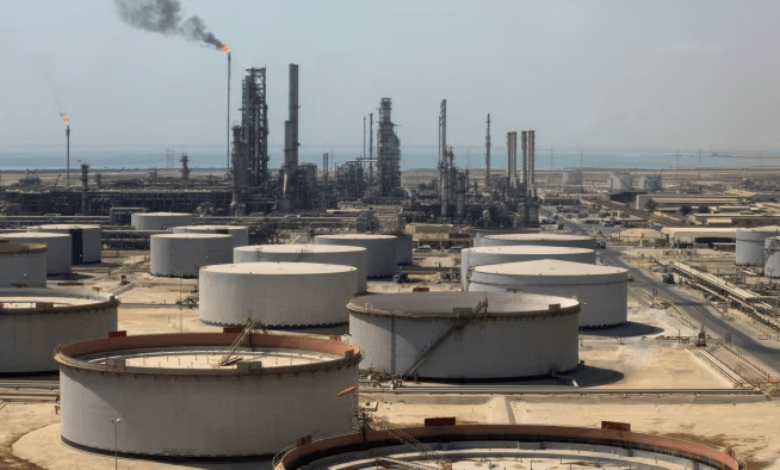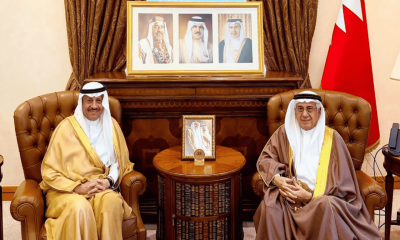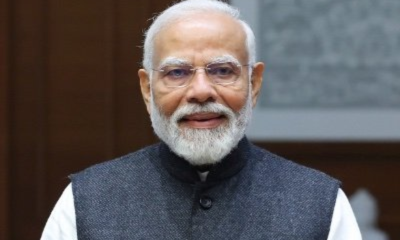In early October, Saudi Arabia announced it would maintain its 1 million barrels per day (bpd) voluntary oil production cut until the end of the year and was in talks with the US to normalize Saudi-Israel relations.
However, Hamas’ October 7 attack on Israel and Israel’s retaliation against Gaza upended the Middle East’s geopolitical landscape—the world’s top crude oil exporter and largest oil transit choke point.
Prince Mohammed bin Salman, Saudi Arabia’s de facto ruler, is the wild card in the Middle East’s latest conflict, Reuters’ George Hay wrote this week.
Saudi Arabia Examining Middle East Policy
The Hamas attack on October 7 occurred as several Middle Eastern countries, including the UAE, normalized relations with Israel. U.S. officials were also reportedly normalizing Saudi-Israeli relations.
Read More: ASEAN-GCC Relations: Forging Alliances in a Changing World
If oil prices rise too high to win Congress’s favor, Saudi Arabia, the world’s top crude oil exporter, may increase its 9 million bpd production early next year. Days before the new conflict, The Wall Street Journal reported that Saudi Arabia would have recognized Israel in exchange for a defense deal with the US, burying hopes of a Saudi-Israel alliance to ease the global oil market.
The market is wondering if an even tighter supply will result if the US tightens sanctions on Iran’s oil exports.
Analysts say Iran’s oil supply, which has been rising to a 2018 high due to weaker U.S. sanctions, could shrink again.
Saudi Arabia and other Muslim nations in the region, some of the world’s largest oil producers, are supporting the Palestinian cause in the latest conflict after restoring diplomatic relations with Iran.
After Hamas’ attack, Saudi Arabia demanded “an immediate halt to the escalation between the two sides, the protection of civilians, and restraint.” The Kingdom also hinted that Israel “recalls its repeated warnings of the dangers of the explosion of the situation as a result of the continuation of the occupation, the deprivation of the Palestinian people of their legitimate rights, and the repetition of systematic provocations against its sanctities.”
Sources told Reuters last week that Saudi policy in the region is rapidly changing, and U.S. plans to normalize relations with Israel are on hold.
The crown prince “underscored the Kingdom’s unwavering stance in standing up for the Palestinian Cause and supporting efforts aimed at achieving comprehensive and fair peace that ensures the Palestinian people’s legitimate rights,” Saudi Arabia said following Iran’s President Ebrahim Raisi’s phone call last week.
After this week’s Gaza hospital blast, Saudi Arabia hosted an emergency OIC meeting that blamed Israel.
The Organisation of Islamic Cooperation Executive Committee condemned “the blatant and unprecedented Israeli aggression in the occupied Palestinian territory and the heinous massacres perpetrated against civilians in Gaza Strip by the Israeli occupation forces,” if “strongly condemns the blatant targeting by Israel’s brutal occupation forces of Al-Ahli Baptist Hospital in Gaza Strip.”
Saudi Arabia may keep oil production policy
The Saudi and OPEC+ production cuts, aimed at “market stability” but pushing oil prices higher, have deepened the rift between the Kingdom and the Biden Administration, which has struggled to contain high petrol prices for U.S. consumers.
Aramco’s CEO Amin Nasser said this week that the company has 3 million bpd of spare oil production capacity.
Nasser added that the world’s largest oil company could increase production “in a couple of weeks” if needed.
Despite robust demand and Iran’s Wednesday call for an Islamic oil embargo on Israel, neither the Saudis nor the Saudi-Russia-led OPEC+ pact have hinted at a policy change to withhold supply.
OPEC+ sources told Reuters on Wednesday that the group won’t act immediately or hold an extraordinary meeting after Iran called for an oil embargo on Israel over the Gaza war.
The Middle East’s geopolitical chaos could push oil prices back up to $95 or $100 a barrel, but Saudi Arabia won’t stop them. Arabia and Russia need high oil prices to fund Mohammed bin Salman’s megaprojects and Putin’s Ukraine war.






















